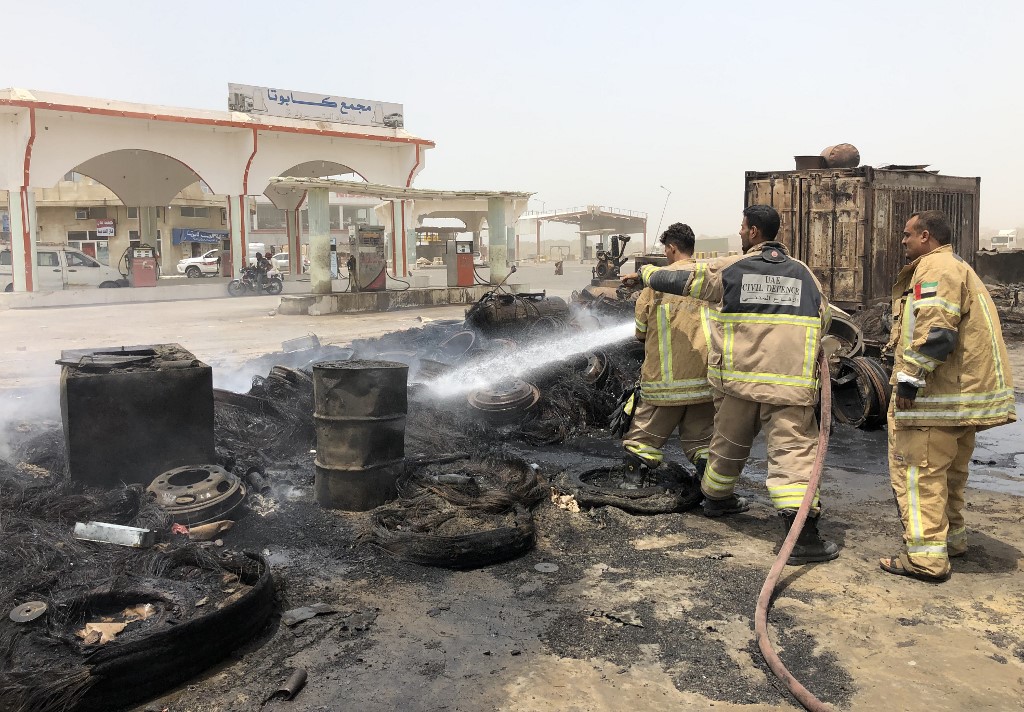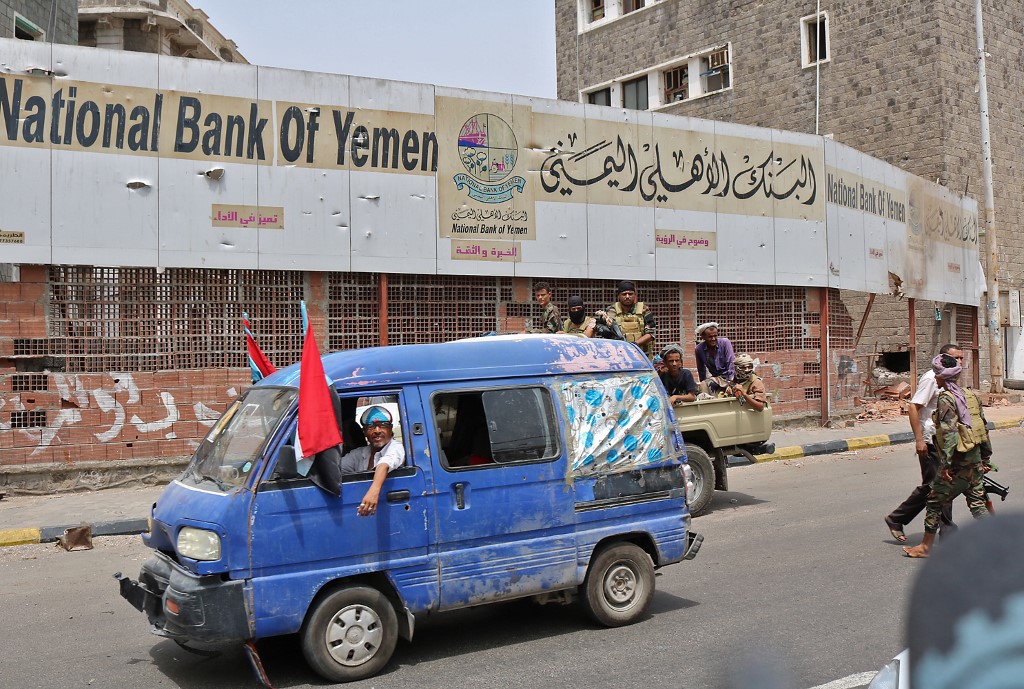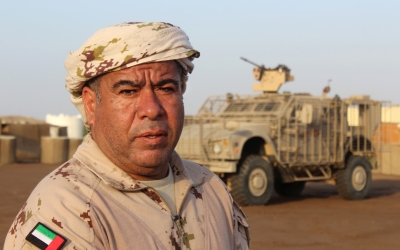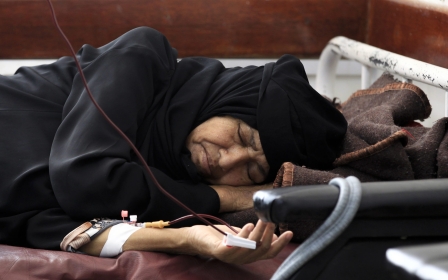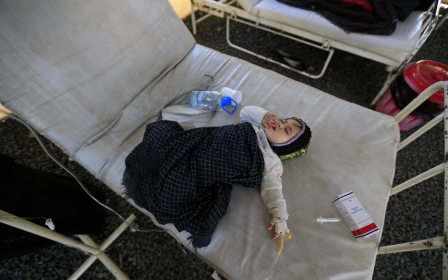Aden residents ask who runs south Yemen now?
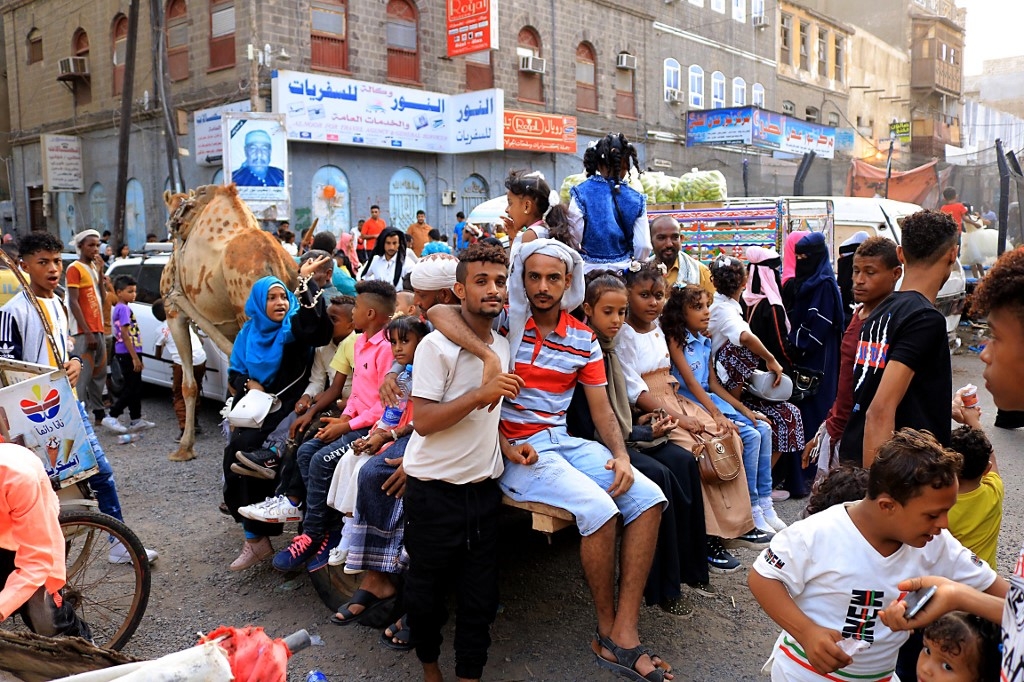
As days of fighting ended between UAE-backed forces and those loyal to Yemen’s internationally recognised government, Yemenis in Aden rang in the Eid holidays with celebration.
But along with the happiness over newly restored calm in the port city, there was a lingering question for residents who spoke with Middle East Eye: who runs the south now?
'We don’t care who will control Aden, but we need to live in peace'
- Sami, 43, worker in food distribution company
From 1967 until 1990, South Yemen was an independent state. Despite reunification with the Yemeni republic, agitation for independence has continued – and intensified with the war.
Among several secessionist groups, the UAE-backed Southern Transitional Council (STC), established in 2017, has emerged as the front-runner.
The group has accused the internationally recognised government of President Abd Rabbuh Mansour Hadi of corruption and mismanagement.
New MEE newsletter: Jerusalem Dispatch
Sign up to get the latest insights and analysis on Israel-Palestine, alongside Turkey Unpacked and other MEE newsletters
It has even taken over many government functions in Aden, which has served as a de facto capital since the Houthis seized Sanaa in 2014.
Tensions came to a head last week with clashes between the UAE-backed Security Belt Forces (SBF) – which are aligned with the STC – and forces loyal to Hadi. More than 40 people were killed and 260 injured, according to the UN.
By Saturday, the SBF, aligned with the STC and also backed by the UAE, had seized the presidential palace and several army camps, in a move that Hadi’s interior minister described as a successful coup attempt.
Now that the dust is clearing, residents are asking what happens next for the south – and whether the STC will declare independence.
Wanted: An end to fighting
For Yemenis like Sami, a 43-year-old employee with a local food distribution company, it is not clear whether the STC is qualified to rule Aden. But the more important question, he said, is who has the most power to take control.
“The SBF backed by UAE are the strongest so now they must take responsibility and manage Aden and the UAE should support them to secede," he told MEE.
Sami, like all other Yemenis who spoke with MEE from Aden by phone, would only go by his first name over security concerns.
He said he is not sure that the UAE plans to support the STC to see out its secessionist ambitions. Meanwhile, the STC, he thinks, won’t be brave enough to announce independence without the UAE's backing.
And sitting in the middle, he said, will only create disputes between Saudi Arabia – which backs Hadi – and the UAE which has fought in the Saudi-led coalition to restore Hadi to power while also financing and training 90,000 fighters and backing the STC.
The two have been allies in the Saudi-led coalition which intervened in Yemen in 2015 to reinstate Hadi's government which was ousted by the rebel Houthi movement in 2014.
But on Sunday, the Saudi-led coalition bombed the SBF, which is backed by its own partner. On Monday, Mohammed bin Zayed, the crown prince of Abu Dhabi met with Saudi Crown Prince Mohammed bin Salman, with bin Zayed calling on warring parties to join a dialogue proposed by Saudi Arabia.
Still the bombing raised questions about a growing rift between the two countries in Yemen.
Sami's main concern, however, remains an end to the dangerous clashes in his city where he lives with four members of his family. He fears if the STC doesn't take control, the SBF will simply continue making chaos in his hometown.
“We hope that was the last of the fighting in Aden. Next time, civilians will take their personal arms and will fight the militias of the UAE,” he said.
“We don’t care who will control Aden, but we need to live in peace and it seems that we won’t have peace as long as the UAE supports the SBF in Aden.”
First Eid under separatists since 1990
Other Yemenis in Aden were more jubilant: this was the first Eid since 1990 that their city was under the control of separatists.
“Our hearts were with the SBF fighters. We only felt happy when we knew that the SBF had taken over the presidential palace,” said Malik, a 32-year-old mechanical engineer who supports the STC, also by phone.
“This Eid, we are celebrating the holiday, but also celebrating the victory of the STC against the northern government, which has been looting Aden since 1990.”
'We only felt happy when we knew that the Security Belt Forces had taken over the presidential palace'
- Malik, 32, mechnical engineer
In some areas of Aden, people were trapped in their homes from last Wednesday until Saturday as the clashes continued.
Since Sunday, Malik said he had felt free to walk around the city safely without any problems from SBF-run checkpoints or fighters which had been stopping residents over the four days of fighting.
“Everything is well. We are now just waiting for the STC to announce the independence of the south. This is the best opportunity. We now control all of Aden,” he said.
“If the STC doesn’t take this step, it will lose many of its supporters. We don’t want any more fighting in Aden. We need to take advantage and declare independence.”
However, this doesn't appear to be on the cards for the STC. On Sunday, STC leader Aidarus al-Zubaidi said he was ready to attend an emergency peace summit in Saudi Arabia, and that his forces were ready to work with the Saudi-led coalition and start a ceasefire.
An Aden-based member of the STC who is also a political science professor told MEE that announcing secession is not a simple issue – and wasn’t the goal of the recent fighting.
“The battles were not for the sake of independence, but for the sake of control and to impose the STC as part of any peace talks and to maintain the wealth of the south,” he said. “Everything in its time is good. Independence will come at the best time."
When asked whether the STC would declare independence, Saleh Alnoud, spokeperson in the movement's UK office, said the group has been clear that southerners should determine their future "as part of a UN-led political solution".
The STC has been critical of its absence, alongside the Houthis and the Yemeni government, at the negotiation table of the peace process led by UN envoy Martin Griffiths.
A first step to reach a solution, Alnoud said, would be to prioritise the southern issue in the UN talks and invite credible southern representatives to participate directly "to resolve the issue and enable sustainable peace and security in the south and region".
'Liberate Yemen from invaders'
Raed, a 47-year-old employee in the Ministry of Culture who supports Hadi’s government, said he wasn’t surprised that the STC wouldn’t move forward by declaring independence.
The movement, he said, will only take major decisions with the approval of the UAE which he doesn’t believe actually wants an effective government in the south. Instead, he believes the UAE only wants control of Aden's vital port.
Alnoud, however, said STC's "sole loyalty is to the southern people and to what they ultimately choose for their future".
Still Raed feels concerned about the power of its foreign backer.
“The UAE does not want to support a government but militias to fight the government. Yemenis should be aware of this issue and start fighting UAE in Yemen,” he said.
“There is no difference between the Houthi coup, backed by Iran, or the STC coup, backed by the UAE. Yemenis should liberate the country from both invaders.” Secession should be a decision made locally by southerners, he said.
This article is available in French on Middle East Eye French edition.
Middle East Eye delivers independent and unrivalled coverage and analysis of the Middle East, North Africa and beyond. To learn more about republishing this content and the associated fees, please fill out this form. More about MEE can be found here.


